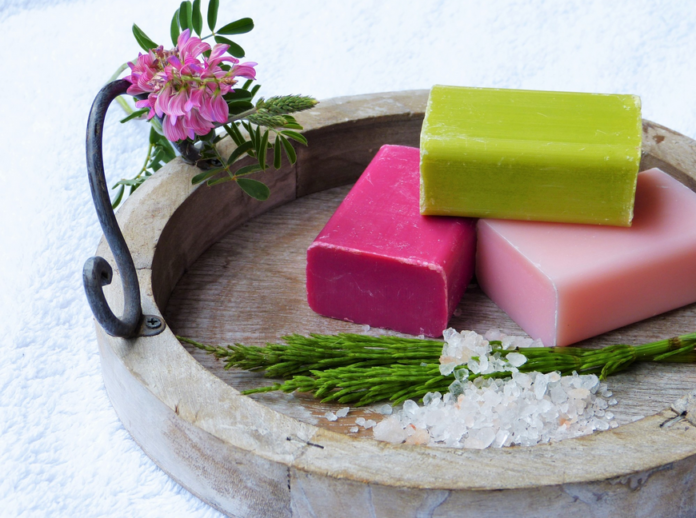If you’re like most people, you wash your hands an average of nine times each day. You reach for the soap, scrub up, rinse, and get back to your day — probably with little or no thought to the ingredients in the soap.
In recent years, though, natural vegan handmade soap has surged in popularity. Why is everyone suddenly obsessed with vegan-friendly soap? Should you be worried about what’s in your soap even if you’re not a vegan?
Keep reading as we explore the fascinating story behind handmade soap bars.
Vegan Soap vs Regular Soap: What’s the Difference?
Before we dive into vegan soap, let’s first travel back in time.
It’s hard to imagine a world without hand soap. But the truth is it didn’t become widely used (at least not for health and hygiene purposes) until the 18th century.
Manufacturers of the time knew that the best way to mass-produce something is to use the cheapest ingredients possible. In this case, they made soap from cleansing agents and animal fat, since both were cheap and easy to get.
Has anything changed today?
Even though the soap-making process has evolved, the ingredients remain largely the same. Ivory Soap, for example, claims to be “99.44% pure.” Yet it’s largely made from rendered animal fat from slaughterhouses and labeled as “sodium tallowate” — a fancy word for beef fat.
What’s in Vegan Soap Bars?
So then, if commercially produced soap uses animal fat, what’s in natural vegan handmade soap?
As you would expect, the best homemade soap bars use 100% natural plant-based ingredients. You won’t find any tallow, lard, goat’s milk, or other animal ingredients or byproducts.
Instead, these soaps work in harmony with your body by using only ingredients derived from plants. These might include:
- coconut oil
- hemp oil
- almond oil
- castor oil
- olive oil
- jojoba oil
- avocado oil
- shea butter
- rice bran wax
- walnut powder
- oatmeal
- flower petals
- essential oils
- sodium cocoate (made from coconuts)
- sodium palm kernelate (made from palm kernels)
The most basic recipe for vegan soap contains three ingredients: distilled water, plant-based oil or butter, and lye.
Lye is an inorganic, vegan-friendly alkaline compound that’s used in all soaps (both vegan and non-vegan). On most labels, you’ll see it listed as “sodium hydroxide.”
From this basic recipe, vegan soap makers can create an endless variety of different soap bars. They can infuse their soap with plant-based essential oils to give it a fruity, floral, or herbal scent.
They can also craft soaps to address different sensitivities — for example, adding shea butter for extra moisturization or oatmeal for skin allergies.
Find the Best Natural Vegan Handmade Soap
Were you surprised by some of the facts about vegan soap presented in this article?
The choice, of course, is up to you. But if you do make the switch to natural vegan handmade soap, you’ll feel good knowing that you’re doing your body — and the environment — a huge favor.
Vegan soap bars aren’t the only topic on the table today. Stay right here and browse our site for more interesting health and lifestyle topics.










